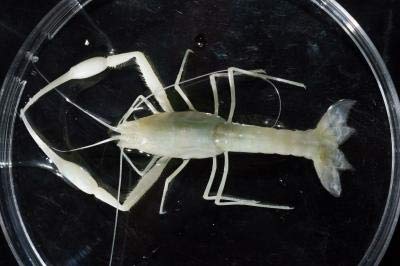Hidden Ecosystem Discovered Beneath Cement Quarry

Get the world’s most fascinating discoveries delivered straight to your inbox.
You are now subscribed
Your newsletter sign-up was successful
Want to add more newsletters?

Delivered Daily
Daily Newsletter
Sign up for the latest discoveries, groundbreaking research and fascinating breakthroughs that impact you and the wider world direct to your inbox.

Once a week
Life's Little Mysteries
Feed your curiosity with an exclusive mystery every week, solved with science and delivered direct to your inbox before it's seen anywhere else.

Once a week
How It Works
Sign up to our free science & technology newsletter for your weekly fix of fascinating articles, quick quizzes, amazing images, and more

Delivered daily
Space.com Newsletter
Breaking space news, the latest updates on rocket launches, skywatching events and more!

Once a month
Watch This Space
Sign up to our monthly entertainment newsletter to keep up with all our coverage of the latest sci-fi and space movies, tv shows, games and books.

Once a week
Night Sky This Week
Discover this week's must-see night sky events, moon phases, and stunning astrophotos. Sign up for our skywatching newsletter and explore the universe with us!
Join the club
Get full access to premium articles, exclusive features and a growing list of member rewards.
At a cement quarry in Israel, researchers have discovered eight previously unknown species of small creatures in a newfound underground cave.
The limestone cave has long been sealed off from it surroundings—even outside water cannot seep through an overlying layer of chalk—and it contains an entire ecosystem unlike anything known.
The newly named Ayalon Cave stretches for about 1.5 miles and is "unique in the world," said Amos Frumkin of the Hebrew University Department of Geography.
A small opening was uncovered at the quarry, leading to the cave, which extends more than 100 yards below the surface. It is situated between Jerusalem and Tel Aviv.
Scientists found seawater and freshwater crustaceans in underground lakes that are a brackish mix, as well as a terrestrial scorpion that, owing to the eternal darkness in the cave, is blind. The new species were all found alive except the scorpion, but live scorpions will be found in further expeditions, said university researcher Hanan Dimentman.
All the animals are thought to have been isolated for millions of years. Other scientists are now working to classify them.
"The eight species found thus far are only the beginning" of what promises to be "a fantastic biodiversity," Dimentman said.
Get the world’s most fascinating discoveries delivered straight to your inbox.
Robert is an independent health and science journalist and writer based in Phoenix, Arizona. He is a former editor-in-chief of Live Science with over 20 years of experience as a reporter and editor. He has worked on websites such as Space.com and Tom's Guide, and is a contributor on Medium, covering how we age and how to optimize the mind and body through time. He has a journalism degree from Humboldt State University in California.
 Live Science Plus
Live Science Plus











